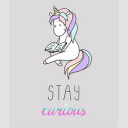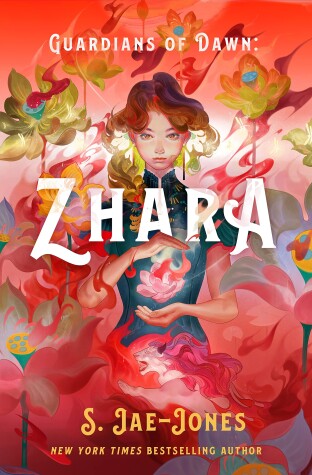
chymerra
Jin Zhara’s life hasn’t been easy. Her mother died as a baby, her father was taken and killed in a purge of magicians, and she is treated horribly by Second Wife, her father’s second wife. She also has to hide that she has magical powers. Her only joy is tending to her blind younger sister, reading romance serials, and working at the apothecary shop. But that will change when she bumps into a young man named Han. Through him, Zhara discovers that a plague corrupts the magician’s powers and turns them into unrecognizable monsters. She also finds the secret organization, the Guardians of Dawn, sworn to help the surviving magicians and discover what caused the plague. Zhara doesn’t know or understand that she is instrumental in balancing order and chaos. But Zhara must learn to control her magical abilities, or the world as she knows will be lost. Can Zhara do that? Can Zhara learn to control her magical powers and save the world?
When I got the email containing the widget for Zhara, I was pleasantly surprised. I had read Wintersong a couple of years ago and enjoyed it (which, it turns out, puts me in the minority). I accepted the invitation and downloaded the book. Also, what figured into my downloading the book was that I love the mythology and lore of South Korea. Seeing that this book is loosely based on those myths and lore, I knew I needed to read it.
Before I get further into the book, I want to put up some trigger and content warnings. The warnings are:
- Child abuse (off-page but prevalent. It consists of emotional, verbal, and physical)
- Genocide (off-page and vividly remembered by everyone in the book)
- Death of parents (Zahara’s mother died of a fever when she was a baby, and her father was killed in the genocide of the magicians in the land. Han’s mother was also killed during that same genocide)
- Possession (on and off page. Demons possess the living bodies of magicians and transform them)
- Body Horror (Zhara, without permission, used magic to try to help Suzhan (her stepsister). Instead, she ended up blinding her sister)
- Abelism (Second Wife shames Suzhan constantly for being blind. Suzhan’s suitors discard her after discovering she is blind.)
If any of these trigger you, I suggest not reading the book.
Zhara is the first book in the Guardians of Dawn series. Here is where I post if this book is a standalone or if you need to read the other books in the series. But since this is the first book in a new series, you can disregard anything I usually say.
The author has a forward explaining how this book is loosely based on Korean mythology and lore. She also apologizes for any inconsistencies that arise because of it. It was a very tongue-in-cheek forward, and it did make me smile.
There are three storylines in Zhara. One follows Zhara, her introduction to the Guardians of Dawn, and her home life. The other storyline follows Han and his search for a book, Songs of Order and Chaos, and the shenanigans he and Xu get into. Towards the middle of the book, Han and Zhara’s storylines merge, following them as they look for a cure for the plague and figure out who was behind it. All of these storylines were wonderfully written and could keep my attention.
I loved the characters in Zhara. I found them all to be complex characters. Some of these characters had more depth, more layers, to them than what the author had written.
The storyline following Zhara, the Guardians of Dawn, and her home life broke my heart. I was beyond angry at Second Wife and her treatment of those girls. She kept reminding Zhara that she kept her safe from the Kestrels and that she houses and feeds her. The abuse that both Zhara and Suzhan went through (even if it wasn’t on page) was awful. But, at the same time, I liked that Zhara started to see herself as more than Second Wife’s property (even though she wasn’t). Her character growth during the book was terrific. It reached a head during the battle scene, where she faced and overcame her demons (literally).
The storyline following Han, Xu, and their shenanigans did give a bit of a comedic break between Zahra’s chapters. But, there was a darker undercurrent running underneath. Han and his brother were forced to watch their mother die because she was a magician. Before she died, Han’s mother made him promise to take care of his brother, who was a magician himself. It was a lot to put on an 11-year-old, but he did it. He ensured his brother was kept safe from the Kestrels at all costs. His friendship with Xu was one of the best I have ever read. The search for the book became a backdrop when Han and Zahara’s storyline merged.
The storyline following Han, Zhara, the plague, the reason for the plague, and the search for the book was interesting. I liked that Zhara slowly started to accept that she was worthy of her power and love. There was a part that I wasn’t fond of. It was the engagement of Han and Yuli. This brings me to another thing I didn’t like: Han keeping who he was from Zhara. It made that scene where she finds out heartbreaking.
The fantasy angle of the book was wonderful. The author created a world that, while similar to ancient Korea, was different. I liked that magic was something people were born with. I also loved that there were antimagicians. I wasn’t expecting that revelation, and who was revealed to be one.
There is an LGBTQIA rep in the book, and I loved how the author wrote those characters. Xu was gender-neutral. I loved their personality and their friendship with Han. They were like Jiminy Cricket was to Pinnochio with Han: a voice of reason. Yuli, who is introduced later in the book, is lesbian. She isn’t exactly loud and proud, but she doesn’t hide it either.
The end of Zhara was interesting. The battle scene and what happened while Zhara was in the Void was anti-climatic. But Zhara needed it. The fallout from that battle was widespread but needed. Also, something shocking happened, something that I didn’t see coming. The author did wrap up most of the storylines but left a few hanging. That makes sense if there is going to be a second book. Also, the epilogue was fascinating, and I can’t wait to find out if that person is a friend or foe.
I would recommend Zhara to anyone over 16. There is no language, but there is violence and a couple of kissing scenes. Also, see my trigger warning list.
Many thanks to St. Martin’s Press, Wednesday Books, NetGalley, and S. Jae-Jones for allowing me to read and review Zhara. All opinions stated in this review are mine.
